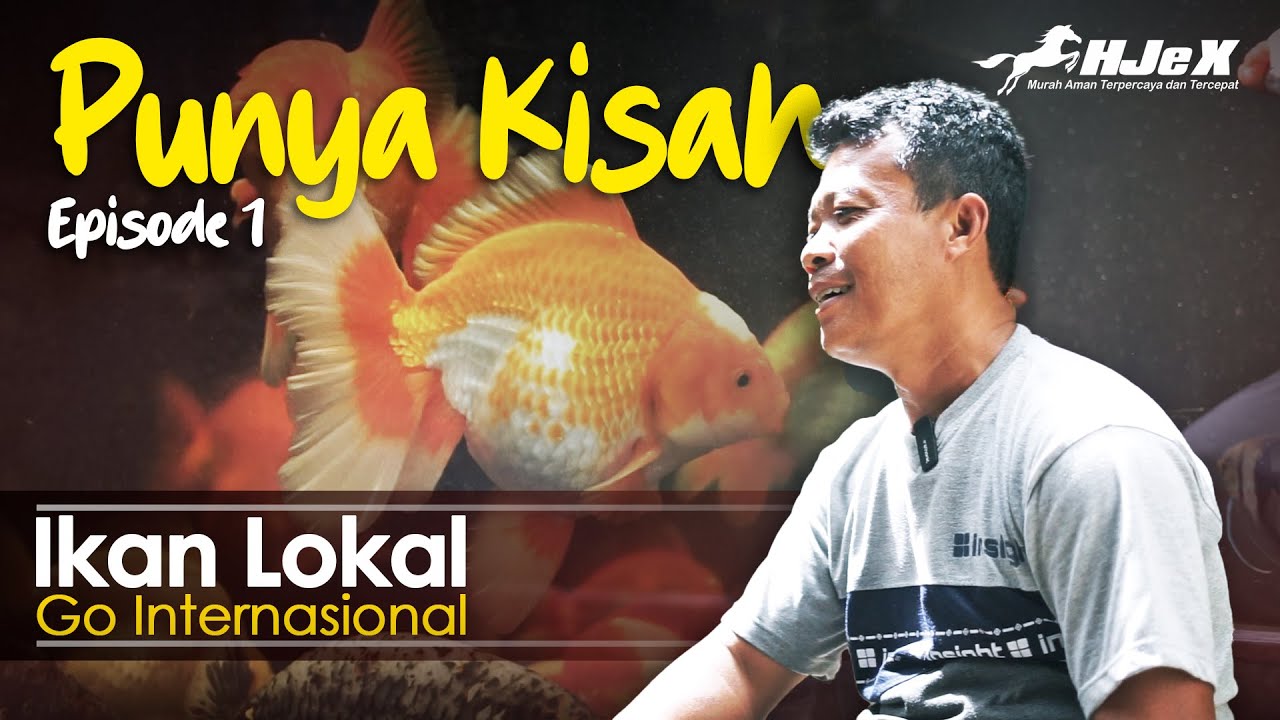BUDI DAYA IKAN HIAS - MATERI PRAKARYA BUDIDAYA KELAS IX SEMESTER GENAP
Summary
TLDRThis video script discusses the diverse and colorful world of ornamental fish in Indonesia, highlighting their beauty as a gift from God. It covers the economic value of fish farming, with a focus on freshwater species like Koi, Cupang, and Arowana, which are easy to breed and have high market demand. The script also touches on the importance of proper breeding facilities, water quality, and feeding techniques to ensure healthy fish growth. It invites viewers to learn more about creating fish breeding habitats in future episodes.
Takeaways
- 🐠 Indonesia has a rich variety of ornamental fish, with over 400 species, though only 90 are widely cultivated.
- 🌍 Ornamental fish have a significant export market, contributing substantially to Indonesia's national revenue.
- 🎨 Freshwater ornamental fish are easier to cultivate, especially in household settings, compared to saltwater species.
- 🐟 Popular freshwater ornamental fish include koi, betta (cupang), arwana, guppy, and goldfish (maskoki).
- 🌀 Betta fish are highly resilient, thrive in low-oxygen environments, and are easy to breed in small spaces.
- 💰 Arwana fish, endemic to Kalimantan and Papua, are highly valuable and can fetch high prices in the market.
- 🐡 Guppies, originally from Central and South America, are easy to breed and reproduce rapidly.
- 🌊 Saltwater fish like clownfish, yellow tang, and butterflyfish are popular, though harder to cultivate.
- 📦 Essential materials for fish farming include water, feed (both natural and artificial), and medication to prevent disease.
- 🏞 Ornamental fish can be bred in various containers such as ponds, tanks, or aquariums, depending on the species and available space.
Q & A
What is the significance of the variety of ornamental fish in Indonesia?
-The variety of ornamental fish in Indonesia is significant as it represents a gift from God that should be appreciated for its beauty and diversity. It also supports a large export market, contributing significantly to the country's foreign exchange earnings.
What are some examples of ornamental fish species that are cultured in Indonesia?
-Some examples of cultured ornamental fish species in Indonesia include koi, neon tetra, koki, cupang, guppy, yellow tangs, blue tangs, clownfish, and butterfly fish.
How many species of freshwater ornamental fish are there globally, and how many of them are from Indonesia?
-Globally, there are over 1,100 species of freshwater ornamental fish being traded, out of which Indonesia has 400 species. However, only 90 species are cultured extensively by the local community.
What are the advantages of culturing freshwater ornamental fish over marine fish?
-Freshwater ornamental fish have several advantages, including ease of breeding. Many species can be cultured with simple technology and facilities, allowing for home-based businesses on various scales. This is different from marine fish, which usually require more expensive facilities.
What are some of the high-economic-value freshwater ornamental fish sought after in the market?
-High-economic-value freshwater ornamental fish include koi, cupang, and arowana. Koi, for instance, are developed in Japan and are known for their attractive colors. Cupang, a freshwater fish endemic to Indonesia, can live in small volumes of water with minimal oxygen. Arowana is also a high-value fish, with small sizes costing thousands of rupiah.
What are the characteristics that make koi fish attractive for ornamental purposes?
-Koi fish are attractive due to their appealing colors and beauty. They require a spacious area for movement and are easy to breed, making them popular for open ponds and aquariums.
How do cupang fish reproduce and what do their eggs adhere to?
-Cupang fish reproduce by laying eggs that adhere to substrates such as plant roots, leaves, and raffia moss. They develop and hatch outside the body.
What are the different types of betta fish mentioned in the script, and how do they differ?
-The script mentions several types of betta fish, including the halfmoon or setengah bulan, crowntail or ekor mahkota, and plakat halfmoon. The halfmoon has broad fins and a tail resembling a half-moon shape, while the crowntail has fins and a tail resembling a crown. The plakat halfmoon has a body shape similar to the laga betta but with more beautiful fins.
What are the challenges in culturing marine ornamental fish compared to freshwater fish?
-Marine ornamental fish are more challenging to culture because they often require more extensive facilities and are generally not as easily bred in captivity. Most marine ornamental fish come from wild catches and are limited in terms of being bred for the market.
What are some essential materials needed for ornamental fish breeding?
-Essential materials for ornamental fish breeding include fish fry, water with specific quality requirements, feed (both natural and artificial), and medication to prevent diseases. Natural feed includes plankton, while artificial feed often comes in pellet form.
What are the different types of containers or facilities used for breeding ornamental fish?
-The facilities used for breeding ornamental fish include concrete ponds, fiberglass tanks, bags, and aquariums. Concrete ponds and fiberglass tanks are often used for larger fish like arowana and alligator, while bags are practical for limited spaces. Aquariums are used for both breeding and as a hobby for relaxation and entertainment.
Outlines

此内容仅限付费用户访问。 请升级后访问。
立即升级Mindmap

此内容仅限付费用户访问。 请升级后访问。
立即升级Keywords

此内容仅限付费用户访问。 请升级后访问。
立即升级Highlights

此内容仅限付费用户访问。 请升级后访问。
立即升级Transcripts

此内容仅限付费用户访问。 请升级后访问。
立即升级5.0 / 5 (0 votes)






